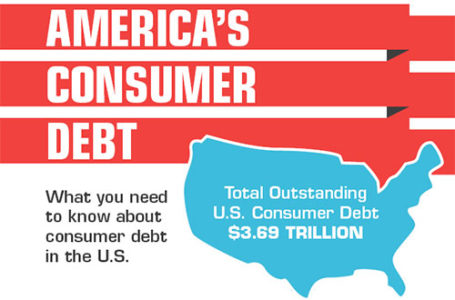Understanding how the collection process works once a debt gets charged off.
If you fall behind on debt payments, anxiety can run high. Between the threat of things like wage garnishment and court judgments, to constant harassment by a debt collector, there’s no shortage of financial stress. But understanding how the collection process works and what can (and can’t) happen during collections can give you at least some peace of mind.
What happens when you can’t pay a credit card?
Missing one payment by a few days doesn’t mean that you’re automatically headed for collections. In fact, you usually have to be behind on your payments by 9 months (270 days) before a creditor will charge off your account.
Before that, you still have some steep consequences for falling behind. If a payment is late, the creditor will apply late fees. If you’re late by more than 60 days, they apply penalty APR that can be as high as 30% or more. You must make six consecutive payments on time before the creditor will remove penalty APR and restore your original rates.
One you hit the 9-month mark, the creditor will move your account to charge off status. This freezes your account, so you can’t make any new charges. Then they either send the debt to their in-house collections department or sell it to a third-party debt collector.
Once the debt officially moves to collections, everything that happens after is regulated under the Fair Debt Collections Practices Act (FDCPA). This federal law creates guidelines for the collection process and prohibits certain actions by collectors, such as threatening you with jail time or using profanity.
How debt collection works
Once a debt is charged off, the creditor basically acknowledges your account as a loss for the company. At this point, for credit cards, no additional fees or interest charges can be applied to the debt. You owe the balance you owed when the creditor charged off the account and nothing more. You can usually settle the debt for a percentage of the balance owed.
If the debt is still with the collections department of the credit card company, then they will attempt to get as much money as possible to cover their loss. When a debt is sold to a third-party collector, they buy your debt (and others) for a fraction of the balances owed. As a result, collectors are generally willing to take a lower percentage for settlement, because it won’t take them much to make a profit if you at least agree to pay something.
The collection agency will call you and send letters to attempt to get you to make payments. Be careful during this time, because anytime you acknowledge that you owe the debt, you reset the clock on the statute of limitations for collection. Most states limit the amount of time a collector has to collect (the maximum is usually 10 years). But every time you admit the debt is yours and you’re obligated to repay it, you reset the clock.
Options once a debt is in collections
You have a few basic options for what you can do when you have a debt in collections and you’re receiving calls:
- You can talk to the collector and attempt to negotiate a settlement or hire a company to negotiate on your behalf.
- You can tell the collector you no longer wish to be contacted with a cease and desist letter. If you do this, their only recourse will be to take you to court.
- Or you can try to hide and dodge the collector until the statute of limitations runs out. Although this relies on the fact that the collector won’t sue you.
If you decide to negotiate a settlement, you’re usually better off to work with a professional debt settlement company. This ensure you settle for the lowest percentage possible. You’ll pay fees that come out to a percentage of the amount settled, but those are only charged once a settlement agreement is reached.
If you send a cease and desist letter or attempt to dodge the collector, then the collector has the right to sue you in civil court. If they win a judgment, they may be able to do things like garnish your wages to force you to repay the debt.
Just bear in mind that once a debt passes the statute of limitations, a collector no longer has the legal right to sue you in court. In other words, if you have an old debt that’s past the statute, write a simple cease and desist to tell them you no longer wish to be contacted. If they call you again, then YOU have the right to lodge a complaint with the FTC and may even have the right to sue the collector for harassment.

